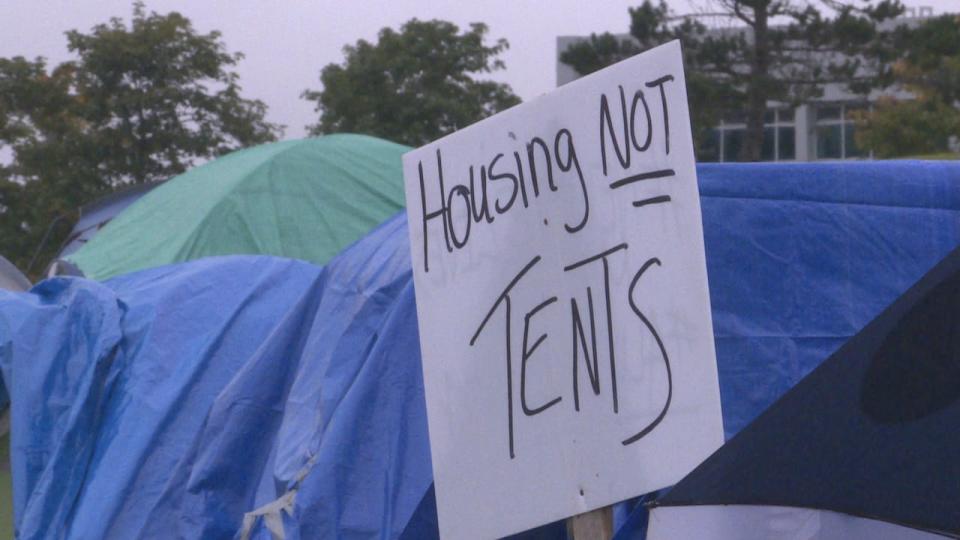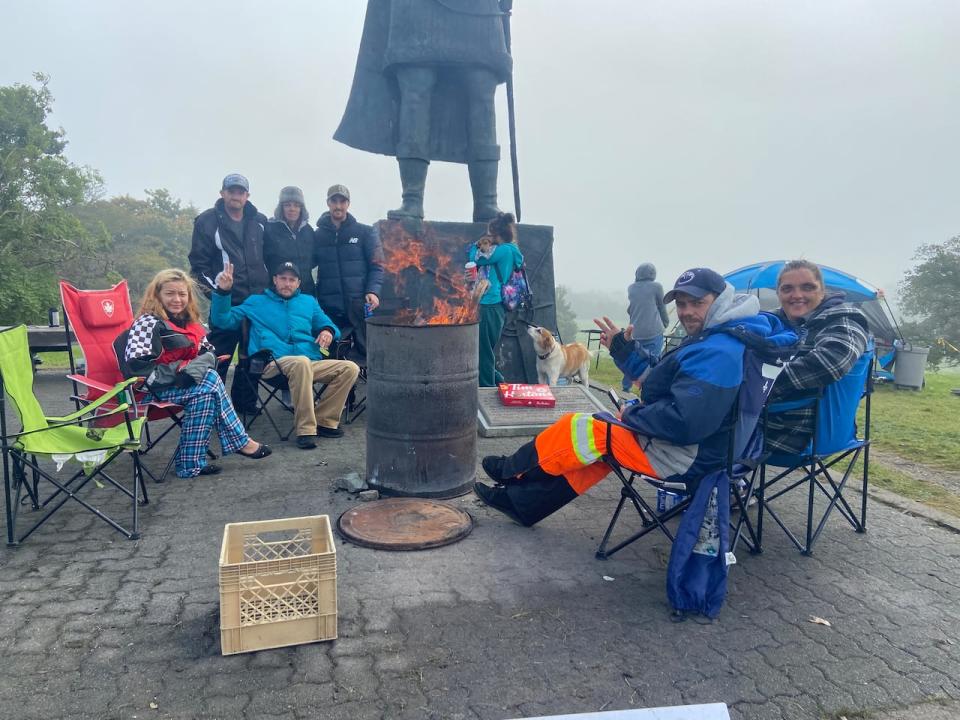Researchers say homelessness is up — and meeting the need for housing will take a massive effort


Daniel Kudla, an assistant professor of sociology at Memorial University, says an increase of homelessness in Newfoundland and Labrador is being seen across Canada. (Submitted by Daniel Kudla)
A sociology professor who studies homelessness at Memorial University says he wasn't surprised to see a tent encampment pop up in St. John's, because the problem is increasing across the province and across the country.
Assistant professor Daniel Kudla says encampments have been set up in many of Canada's big cities, including Toronto, Montreal and Vancouver, and as the cost of living has ratcheted up, they're emerging in mid-sized and smaller cities.
Kudla said the problem comes down to government inaction on housing policy going back nearly three decades to the 1990s, when governments started divesting some social housing and services.
"Usually people believe that homelessness is a result of their individual behaviours, their individual decisions," Kudla said, "but rather, I argue, it's the decisions of governments and policymakers that have created a condition where these people have become unhoused."
Newfoundland and Labrador numbers are surging, Kudla said.
End Homelessness St. John's estimates about 900 people experienced homelessness in the province in 2022. Kudla says that's a big jump compared to a 2018 point-in-time count of 165 people who were without homes. The way homelessness is measured has changed and could partly account for the higher number, he said, but either way, he says homelessness and poverty is becoming a more visible problem in the city.

Tents are pitched in front of Confederation Building in St. John's, as people — many of them homeless — draw attention to Newfoundland and Labrador's housing crisis. (Henrike Wilhelm/CBC)
The COVID-19 pandemic has also made the problem worse, he said.
"The cost of living has gone up, the rental market is tough to tap into, rents are increasing, so people are really struggling right now. It's kind of created this perfect storm, unfortunately, again, caused by systemic factors," he said.
People like Karen Peddle, who has been part of the tent encampment protest since it began Oct. 2, knows what it's like to face the systemic factors Kudla is talking about.
She wants governments to build more housing units so the protesters, like her, will have a place to live.
"I just wants to go the frig home out of it," Peddle said.
Housing consultant and researcher Hope Jamieson says it will take a "massive and concerted effort" to build enough homes to tackle the housing and homelessness crisis.

Karen Peddle has been living in a tent on Confederation Hill in St. John's for more than 10 days. She wants to see more homes built. (John Pike/CBC)
The Canada Mortgage and Housing Corporation estimates the province, at its current rate of construction, will be 60,000 homes short of the demand by 2030.
"We really need to be pulling hard at this and all pulling together and not just saying, 'OK, we have some shelter beds and we built four units, we're doing a great job,'" Jamieson said.
Newfoundland and Labrador Housing said it's offered the tent encampment protesters places in shelters and has been reserving six to eight beds a night for them.
But most protesters don't want to go — citing poor living conditions and food, on top of fears for their safety — and have vowed to stay in tents until they're offered permanent housing.
"They don't do background checks, they just throws everybody into the mix," Peddle said.

Hope Jamieson is a former City of St. John's councillor and an advocate for affordable housing in the city. (Garrett Barry/CBC)
Peddle says she's also seen people in the shelter system wait for lengthy periods of time for accommodations.
Shelters are essential when it comes to addressing homelessness, said Jamieson, but there needs to be a plan to help people transition out of them.
"In terms of long-term solutions, when we're hearing of shelter stays of more than a year, 400 days being average in some places, that tells me that there are still massive holes in our housing system that we're not addressing," Jamieson said.
Some people who are homeless need not just housing but support and services to help them keep their places, said Peddle.
"Because there's different needs for everybody in homelessness, right?" she said. "For addictions and for your psyche, because, I mean, like, you lose a lot in the shelter shift."

The tent encampment protest for safe and affordable housing is in its second week. Participants have been offered transitional housing but they want promises it will lead to permanent homes. (Heather Gillis/CBC)
When it comes to an end to the tent encampment, Kudla says in other cities, like Halifax, Toronto and Kitchener-Waterloo, the police have eventually dismantled them, usually in response to safety concerns.
"The police have come in, forcibly removed people in these encampments and compelled them to some sort of temporary housing," he said.
Kudla calls that approach punitive and harsh and said it doesn't address the root cause of the problem.
"I would caution governments and police not to do that here because those structural causes certainly need to be attacked as opposed to … moving them around, leading to the re-emergence of these encampments."
Download our free CBC News app to sign up for push alerts for CBC Newfoundland and Labrador. Click here to visit our landing page.


